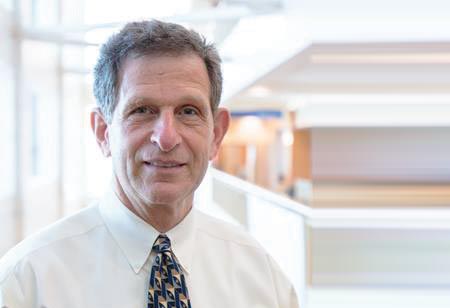Thank you for Subscribing to Healthcare Business Review Weekly Brief

Intermountain Healthcares Hospital-: Based Dentistry Provides Care for Special Needs Patients and Those Who Need Dental Care in the Hospital
Healthcare Business Review
Dr. Marc A. Collman, DDS, FICD is the director of special care hospital dentistry at Intermountain McKay Dee Hospital in Ogden, Utah, and is associate director of hospital dentistry, at the University of Utah Hospital and associate professor of dentistry at the University of Utah School of Dentistry.
Intermountain Healthcare has an innovative hospital-based oral health care programwhich launched in 2019, called special care hospital dentistry. The program provides dental care for patients who have special needs or are unable to undergo dental services in a traditional dental office setting. Examples of diagnoses that can benefit from these servicesare autism spectrum, Down’s syndrome, cerebral palsy, muscular dystrophy, epilepsy, and traumatic brain injury.
Various dental procedures can be provided for special needs patients in the operating room, including dental cleanings, digital dental x-rays, a comprehensive dental examination, fillings, extractions, root canal therapy, crowns, implants, gum surgery, and bone grafts. This environment is very controlled because the patient is under anesthesia. Other medical procedures can be completed during this time. The cost of delivering care may be reduced, if needed medical and dental procedures can be completed during the same operating room time.
Intermountain has recognized how hospital-based dentists can help provide emergent dental care for other patients in the hospital who need dental care in addition to medical care.
A hospital-based dentist could be available for patients who present to the emergency department with dental issues such as oral pain, swelling, or trauma. Emergent dental care can be provided and often a hospital admission can be avoided, and the patient can receive follow up care from a community-based dentist.
Hospital-based dentists can also address emergent dental needs of a patient who is hospitalized. For example, a patient in the hospital is being prepared for heart surgery and the medical team determines the patient must have a dental clearance prior to surgery stating that the oral cavity is not a potential source of a bacteria in the blood stream, meaning, no deep caries or active dental infections. Any worrisome teeth or oral disease that could jeopardize the outcome of the heart surgery, can be emergently treated in the operating room, before proceeding with the heart surgery.
Patients who are preparing to receive cancer treatments also need to be checked to see if their teeth, gums and supporting bones are free of any potential source of bacteria that could get to the blood stream prior to surgical oncology procedures or therapies.
Hospital dentists may co-provide care with various medical specialties including hospitalists, emergency room physicians, oral surgeons, otolaryngologists (head and neck surgeons), oncologists, cardiovascular surgeons and infectious disease physicians.
Hospital-based dentists need to have not only expert knowledge and procedural skills, but also exceptional listening skills and an ability to make complex decisions in alignment with the hospital’s physician and nursing staff.









